John Janaro's Blog, page 81
March 2, 2022
Notes on Lent and Easter, West and East
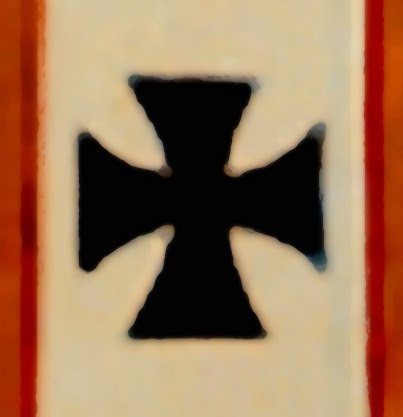 Today is Ash Wednesday, the beginning of Lent for most Western Christians, which includes the very distinctive service of distribution of ashes on the foreheads of believers in the numerically predominant Roman Rite of the Catholic Church. The Roman “rite” is the largest and by far most globally extensive nexus of liturgical, theological, and spiritual traditions of churches and bishops in full communion with the Successor of Saint Peter, the Pope.
Today is Ash Wednesday, the beginning of Lent for most Western Christians, which includes the very distinctive service of distribution of ashes on the foreheads of believers in the numerically predominant Roman Rite of the Catholic Church. The Roman “rite” is the largest and by far most globally extensive nexus of liturgical, theological, and spiritual traditions of churches and bishops in full communion with the Successor of Saint Peter, the Pope.This year especially, it’s worth noting that there are other churches that acknowledge Papal primacy and are fully and visibly part of the Catholic Church, that have their own distinctive “rites” rooted in ancient traditions from the Middle East, the Byzantine world, and other regions. These include what is often called the “Ukrainian Greek Catholic Church,” the largest group of Catholics in Ukraine, who do not observe “Ash Wednesday,” and who will celebrate Easter a week later than the Roman rite churches, because their liturgical calendar corresponds to the “Eastern Orthodox” churches (which are not in full communion with Rome, and which include the patriarchates of Constantinople, Moscow, and the recently established Orthodox patriarchate of Kyiv).
Ukrainian Catholics also make up a significant portion of the “Ukrainian Diaspora,” notably in the USA and Canada, made up of Ukrainian refugees and their descendants who left their homeland during the brutal persecutions of Stalin and the ravages of Nazi and Soviet aggression during World War II. In particular, Stalin forcibly suppressed the Ukrainian Greek Catholic Church in 1946, resulting in martyrdoms in his notorious Gulag, and driving others who remained faithful to it underground or into exile. Most (many?) Ukrainian Catholic Churches in North America (correct me if I’m wrong) follow the same liturgical dates for Easter as other Western Christians, which means that they began Lent this past Monday, February 28. In Ukraine itself, however, Lent begins on Monday, March 7.
The Ukrainian Catholic Church, especially in Western Ukraine, has enjoyed a significant revival in recent decades since the fall of the Soviet Union, and now has cordial ecumenical relations with the much larger majority of Orthodox Christians in Ukraine, whose spiritual and liturgical traditions they share very closely, but with whom there is not full communion because there remains the shadow of a thousand years of “historical weight” following upon the tragic Byzantine-Roman separation of 1054 and the multitude of conflicts that ensued over the course of centuries. Orthodox Christians today don’t recognize the Pope’s primacy of jurisdiction, and are often governed by national hierarchies. Ukrainian Catholics, while known for their Ukrainian patriotism, are also strong adherents to the Successor of Saint Peter.
Confused? That would be understandable. No doubt it’s very confusing to the former KGB late-Soviet-era apparatchik who today seems to want to wield the power of the imperial throne, to be the new “Autocrat of All the Russias.” May God change his heart, and the hearts of his enablers, before he plunges further into this awful catastrophe.
Undoubtedly, the present war against Ukraine is drawing all Ukrainian Christians, and all her citizens of good will, closer together.
Meanwhile Pope Francis has requested that today be observed as a day of prayer and fasting for Ukraine. Roman-rite Catholics already pray and fast for this first day of Lent, but we can offer this Ash Wednesday especially for Ukraine, for an end to the aggression, for all who are suffering from its consequences. But Francis’s invitation to pray and fast is extended to everyone, to all Christians, to every human person who wishes to make this small gesture of solidarity with the victims of war, and of imploring God to save them - and everyone - from the escalation of violence and destruction.
March 1, 2022
“Those Who Wage War Forget Humanity”
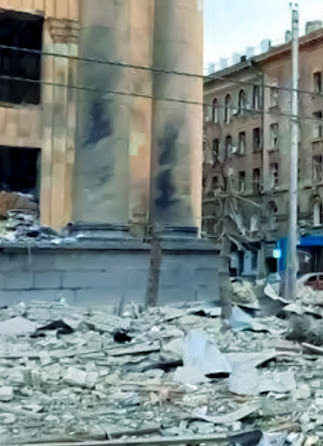 “Those who wage war forget humanity. They do not start from the people, they do not look at the real life of people, but place partisan interests and power before all else. They trust in the diabolical and perverse logic of weapons, which is the furthest from the logic of God. And they distance themselves from ordinary people, who want peace, and who – the ordinary people – are the real victims in every conflict, who pay for the follies of war with their own skin. I think of the elderly, of those who seek refuge in these times, of mothers fleeing with their children… They are brothers and sisters for whom it is urgent to open humanitarian corridors, and who must be welcomed. With a heart broken by what is happening in Ukraine – and let us not forget the wars in other parts of the world, such as Yemen, Syria, Ethiopia... – I repeat: put down your weapons! God is with the peacemakers, not with those who use violence. Because those who love peace, as the Italian Constitution states, ‘reject war as an instrument of aggression against the freedom of other peoples and as a means for the settlement of international disputes’.”
“Those who wage war forget humanity. They do not start from the people, they do not look at the real life of people, but place partisan interests and power before all else. They trust in the diabolical and perverse logic of weapons, which is the furthest from the logic of God. And they distance themselves from ordinary people, who want peace, and who – the ordinary people – are the real victims in every conflict, who pay for the follies of war with their own skin. I think of the elderly, of those who seek refuge in these times, of mothers fleeing with their children… They are brothers and sisters for whom it is urgent to open humanitarian corridors, and who must be welcomed. With a heart broken by what is happening in Ukraine – and let us not forget the wars in other parts of the world, such as Yemen, Syria, Ethiopia... – I repeat: put down your weapons! God is with the peacemakers, not with those who use violence. Because those who love peace, as the Italian Constitution states, ‘reject war as an instrument of aggression against the freedom of other peoples and as a means for the settlement of international disputes’.”~Pope Francis, 2/27/22
February 27, 2022
Our Hope is the Lord, Who Loves and Forgives Us
God looks at us in this way: he does not see irredeemable errors in us, but children who make mistakes. It is a change in outlook: he does not concentrate on the mistakes, but on the children who make mistakes. God always distinguishes the person from his errors. He always saves the person. He always believes in the person and is always ready to forgive errors. We know that God always forgives. And he invites us to do likewise: not to look for evil in others, but good.”


Our Hope is the Lord
February 24, 2022
Vladimir Putin’s War in Ukraine
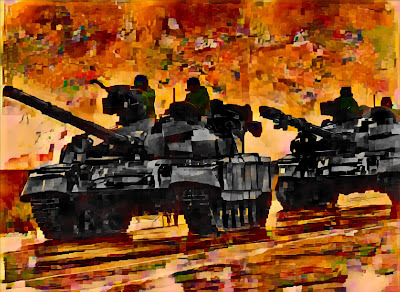 In the early morning hours of February 24, 2022, Russia launched a massive invasion of Ukraine by land, sea, and air.
In the early morning hours of February 24, 2022, Russia launched a massive invasion of Ukraine by land, sea, and air.This is not really surprising; it has been brewing at least since Vladimir Putin annexed Crimea in 2014 and stirred up separatist movements in two of Ukraine's Eastern provinces. Eight years ago, Western media featured daily updates on Ukraine's vast protest movement against the heavy hand of Putin's hegemony in the region and his obsession with preventing Ukraine from deepening its ties with the rest of Europe. I posted about these events several times on this blog in February and March 2014.
In those days, there were widespread concerns in everyone’s minds about how far Putin's militarism would go. Much of the West soon became distracted from these concerns, but the Ukrainians continued to endure the intrusion of Russian power even as they struggled to solidify the realization of stable institutions and alliances as an independent nation-state.
Now, however, the crisis has become exponentially more acute. Russian armed forces are engaging in a brazenly open invasion of the whole of Ukraine, seizing sovereign territory, inflicting casualties, destroying infrastructure, and approaching the capital city of Kyiv.
All of this, according to Putin, is justified by the alleged security needs of the two separatist “republics” at the border of Eastern Ukraine, to which he granted “recognition” on Monday. Putin claims to be responding to Ukrainian attacks against them, without offering any evidence. It’s the classic pretext for naked aggression.
In fact, Putin has a list of grievances and accusations against the West, and insists that Ukraine itself has no right to exist as a sovereign nation. I read the entire text of the hour-long historical-cherry-picking speech he gave on Monday. It was crass, skewed, and incredibly condescending toward Ukrainian aspirations. Even worse, it was a virtual apologia for centralized dictatorship and a preposterous attempt to whitewash the filth of the Soviet past, at least with regard to Soviet centralism’s provision of strength and political stability.
Putin is not a Communist. But he seems to be an admirer of autocracy, in particular Russian autocracy. Listening to Putin's speech of February 21, one would think that Moscow’s overlordship was the only effective and viable political option for governing Eastern Slavic peoples. He blames Lenin and the early Bolsheviks for encouraging too much the nationalist movement in Ukraine in the early 20th century in order to secure Ukrainian support for the new regime of “Soviet Socialist Republics.” Then, after making vague references to the regrettable nature of Stalin’s terror tactics, he seems to imply that the end result of Stalinism was somehow beneficial in that it restored “unity” to the Soviet state (i.e. centralized totalitarian control to Moscow).
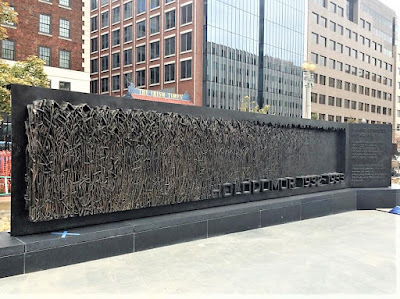
For someone who claims to be appealing to the greater patriotic sense of Ukrainians, this was an outrageous lapse into historical forgetfulness. Joseph Stalin is not a name that inspires reverence or nostalgia among Ukrainians. How can any respectable world leader (much less the leader of Russia!) speak of Stalin with reference to Ukraine without mourning the appalling genocidal famine - the Holodomor - perpetrated by Stalin in 1929-33 that murdered millions of Ukrainians? Is it any surprise that Ukrainians don’t want to entrust themselves to the hegemony of a Moscow ruled by the likes of Vladimir Putin?
I don’t know what Putin was thinking; it would be easy here to just accuse him of being a rogue bent on humiliating and insulting the nation he was about to invade and conquer. The implications of such an accusation are so terrible, however, that I would prefer to assume that it only indicates the crass ignorance of a career KGB agent who - whatever his pretenses to historical erudition may be - thinks no further than his immediate objective requires. In any case, Putin decided that the only mistake of Stalin worth mentioning in his speech is that Stalin didn’t change the Soviet constitution to reflect that the “republics” were in reality nothing more than provinces of Moscow’s Great State. This left open the door for the re-emergence of “nationalist movements” in the 1980s and the eventual fragmentation of the Russian-controlled “Union.” According to Putin, this is the only reason why Ukraine exists as an independent nation. This, to say the least, is another insult against the Ukrainian people and their spirited and consistent efforts to affirm their unambiguously verifiable national identity and its deep roots in their history as a people.
Ukrainian perseverance seems to be a source of great frustration for Putin, who wants to exercise a stronger hand in this fertile and resource-rich country. He claims that he does not seek to restore the old centralized Soviet political union (or parts of it). What seems clear, however, is that he believes in some kind of “Greater Russia” that looks to Moscow as its political reference point (in the strong sense of the term).
By launching a massive military action, without provocation (or at least grossly disproportionate even for one who agrees with Putin’s goals and assessments), Putin only proves that the Ukrainians have been right to fear him, and to seek other security alliances (e.g. NATO) to protect them against his aggression. Whatever one thinks of NATO's relevance or practicality in the multilateral world of today, it was originally established to be a defensive alliance and it has remained true to this purpose. Is it surprising that nations surrounding Putin’s Russia have sought refuge in NATO - Poland, Latvia, Lithuania, Estonia? Stalin’s centralized State apparently decided that the latter three “belonged” under its power and made an effort to include Poland as well. Today these nations fear that Stalin’s post-communist, autocratic protégé may have similar plans for the “influence” of a new Greater Russia. In light of what’s happening in Ukraine right now, it is understandable if they feel that their fears are justified.
It might be argued that Ukraine is a “special case.” But while there are certainly profound and ancient fraternal bonds between Russians and Ukrainians, their long and complex history does not vindicate the always-inflated claims (old or new) of Muscovite imperialism. I have long studied the history of this part of the world and I have great love for both the Russian people and the Ukrainian people, as well as those who have mixed Russian and Ukrainian ancestry. I understand and appreciate their concerns about many destructive secularist Western cultural and social forces. But dictatorship and offensive war are also destructive forces. Domination is not brotherhood, and there is nothing new about Vladimir Putin’s dream of reviving some new form of the regional domination once enjoyed by the Soviet Union or the Russian Empire.
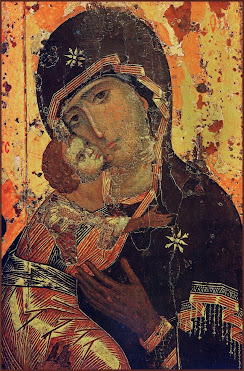 Certainly Putin’s theories and dreams do not constitute a justification for an invasion of Ukraine using damaging and lethal force, a violation of international law so flagrant that no other nation is willing to endorse it. The times we live in may be tumultuous and confusing, but the fundamental tenets of international law are still recognized. They still exist to restrain the gangs that roam the global village, and to protect the multitudes of innocent people therein.
Certainly Putin’s theories and dreams do not constitute a justification for an invasion of Ukraine using damaging and lethal force, a violation of international law so flagrant that no other nation is willing to endorse it. The times we live in may be tumultuous and confusing, but the fundamental tenets of international law are still recognized. They still exist to restrain the gangs that roam the global village, and to protect the multitudes of innocent people therein.What does Putin hope to accomplish? It’s hard to fathom the recklessness of actually launching an invasion of this magnitude. What he has done is in total opposition to building bonds and furthering closeness between Ukraine and Russia. It can only bring suffering to Ukrainians and Russians now and in the future, and the consequences of any further escalation would be catastrophic in ways we can scarcely imagine.
May God have mercy on the perpetrators and the victims of this war, and on the whole world. Holy Theotokos, Mother of God, Virgin of Kyiv, Virgin of Vladimir, Mother of Tenderness, protect all your children. Beg your Son to convert our hearts to Him.
War in Ukraine
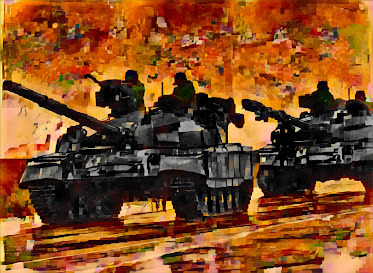 In the early morning hours of February 24, 2022, Russia launched a massive invasion of Ukraine by land, sea, and air.
In the early morning hours of February 24, 2022, Russia launched a massive invasion of Ukraine by land, sea, and air.This is not really surprising; it has been brewing at least since Vladimir Putin annexed Crimea in 2014 and stirred up separatist movements in two of Ukraine's Eastern provinces. Eight years ago, Western media featured daily updates on Ukraine's vast protest movement against the heavy hand of Putin's hegemony in the region and his obsession with preventing Ukraine from deepening its ties with the rest of Europe. I posted about these events several times on this blog in February and March 2014.
In those days, there were widespread concerns in everyone’s minds about how far Putin's militarism would go. Much of the West soon became distracted from these concerns, but the Ukrainians continued to endure the intrusion of Russian power even as they struggled to solidify the realization of stable institutions and alliances as an independent nation-state.
Now, however, the crisis has become exponentially more acute. Russian armed forces are engaging in a brazenly open invasion of the whole of Ukraine, seizing sovereign territory, inflicting casualties, destroying infrastructure, and approaching the capital city of Kyiv.
All of this, according to Putin, is justified by the alleged security needs of the two separatist “republics” at the border of Eastern Ukraine, to which he granted “recognition” on Monday. Putin claims to be responding to Ukrainian attacks against them, without offering any evidence. It’s the classic pretext for naked aggression. In fact, Putin has a list of grievances and accusations against the West, and insists that Ukraine itself has no right to exist as a sovereign nation. There is nothing new about Putin’s dream of reviving some level of the regional domination enjoyed by the Soviet Union or the Russian Empire.
Putin’s theories and dreams, however, do not constitute a justification for war, or a violation of international law so flagrant that no other nation is willing to endorse it.
What does Putin hope to accomplish? It’s hard to fathom the recklessness of actually launching an invasion of this magnitude. It can only bring suffering to Ukrainians and Russians now and in the future, and the consequences of any further escalation would be catastrophic in ways we can scarcely imagine.
May God have mercy on the perpetrators and the victims of this war, and on the whole world.
February 22, 2022
Luigi Giussani: “Teacher of Humanity”
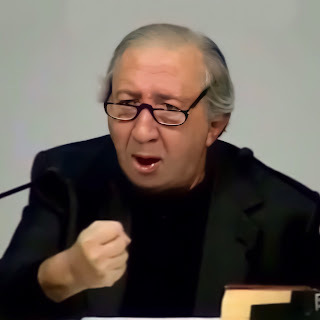 On this day, the Feast of the Chair of Saint Peter, we also mark the 17th anniversary of the death of the great Monsignor Luigi Giussani, founder of the Communion and Liberation movement.
On this day, the Feast of the Chair of Saint Peter, we also mark the 17th anniversary of the death of the great Monsignor Luigi Giussani, founder of the Communion and Liberation movement.This picture shows how I remember him thirty years ago, with his big earthy face and gravelly voice, his pile of books and his emphatic gestures, his wisdom and his passion: a "teacher of humanity," John Paul II called him. He certainly taught mine.
My whole life is different because of this man, because of his witness that Jesus really is at the center of our human life, with all our hopes, joys, and suffering. And because of the charism of CL, which still helps me remember this every day.
February 20, 2022
“Bless Those Who Curse You…”
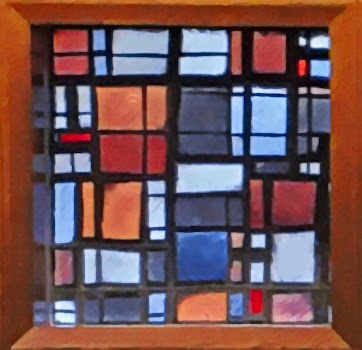 Sometimes the entire Gospel text from the liturgy deserves to be posted, simply as Jesus presents it, without comment. Many things could be said, but this text should be pondered and allowed to speak for itself, to shine in all its supernatural human concreteness.
Sometimes the entire Gospel text from the liturgy deserves to be posted, simply as Jesus presents it, without comment. Many things could be said, but this text should be pondered and allowed to speak for itself, to shine in all its supernatural human concreteness.Jesus said to his disciples: “To you who hear I say, love your enemies, do good to those who hate you, bless those who curse you, pray for those who mistreat you. To the person who strikes you on one cheek, offer the other one as well, and from the person who takes your cloak, do not withhold even your tunic. Give to everyone who asks of you, and from the one who takes what is yours do not demand it back. Do to others as you would have them do to you.
“For if you love those who love you, what credit is that to you? Even sinners love those who love them. And if you do good to those who do good to you, what credit is that to you? Even sinners do the same. If you lend money to those from whom you expect repayment, what credit is that to you? Even sinners lend to sinners, and get back the same amount. But rather, love your enemies and do good to them, and lend expecting nothing back; then your reward will be great and you will be children of the Most High, for he himself is kind to the ungrateful and the wicked. Be merciful, just as your Father is merciful.
“Stop judging and you will not be judged. Stop condemning and you will not be condemned. Forgive and you will be forgiven. Give, and gifts will be given to you; a good measure, packed together, shaken down, and overflowing, will be poured into your lap. For the measure with which you measure will in return be measured out to you.”
~Luke 6:27-38
February 19, 2022
God’s Mercy Brings Forgiveness, Healing, and Freedom
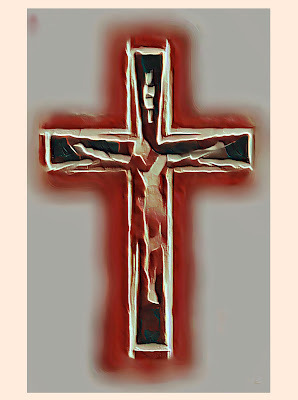 Soon Lent will begin. We will take up the liturgical and spiritual path that prepares us for our annual immersion in the Paschal Mystery of the redeeming death and resurrection of Jesus.
Soon Lent will begin. We will take up the liturgical and spiritual path that prepares us for our annual immersion in the Paschal Mystery of the redeeming death and resurrection of Jesus.It begins with humility. We remember that we are dust. We are sinners. Indeed, we fail in so many ways.
Today we are very much aware that a significant portion of our fragility and incapacity and anguish is not entirely our fault. We are hindered by physiological and psychological limitations that we inherit, from the pain of our own experiences, from illnesses, from all the wounds inflicted by the failures of others.
It is proper, especially in these tumultuous and traumatic times, that we recognize the many factors that can reduce the subjective culpability of our failures, the many complex forces that can confuse the mind and diminish the freedom of choice engaged in our bad actions within the context of of our mixed-up and overburdened lives.
Of course, all our afflictions are radically rooted in Original Sin, of which some of the disorienting effects remain even after Baptism, including the brokenness, weakness, and frailty of being bodily human persons subject to all manner of sicknesses, injuries, obscurity, and - ultimately - the dissolution of death.
Yet we also know that our freedom still lives within this debilitated frame. We know that our freedom has been summoned by the promise of love, by the beauty and attraction of a fulfillment that is mysteriously made possible, by a hope that we cannot extinguish.
And we know that sometimes, to some extent, we have freely chosen to hide in the shadows of ourselves. We have refused to take the next step on the path that the light indicates to us. We have chosen to draw back into darkness.
Something of the brokenness that each of us suffers right now is our own fault. In the immensely complicated fabric of every human life there are many events and circumstances, but there is also the willful misuse of freedom. There is sin.
We have all sinned. We all need forgiveness.
We are able to recognize so many genuine excuses for our failures, and these are factors of our lives that need attention, compassion, and healing. All of this is important, but it is not enough. We need to acknowledge and perhaps feel the touch of the unbearable weight of our own responsibility, our yielding to weakness, indulgence, distraction and our taking up of the weapons of destruction of ourselves and others. We need to acknowledge that we really are sinners.
Each one of us needs to examine his or her conscience and seek forgiveness for our sins.
When we bring this ultimate vulnerability into the open and raise it up to the One who has created us and who sustains our being, then we can discover the wonder of mercy.
God's response to our sins is Jesus. God gives Himself, and the abyss of His love is infinitely "deeper" than any of our wounds. He wants to turn our hearts away from sin, to forgive us, to heal our brokenness and empower us to cooperate with - and to be elevated and transfigured by - His redeeming love.
As the Lenten Season draws near, let us remember His immense love for us, turn to Him in trust, and experience His forgiveness and mercy through Jesus Christ.
No matter how messed up we are, no matter how wicked we may have been, no matter how desperate, confused, overwhelmed, or lost we may feel, no matter how screwed-up, afflicted, oppressed, stuck in cycles-of-dysfunctionality, lonely, hurt, powerless, shattered we may be, we must cry out for mercy to the Lord who loves us and is always seeking us. His mercy changes us, converts us, sets us free, finds our wounds and heals them, brings light to our deepest darkness.
It was for this mercy that the Father sent His Son into the world. It was for this mercy that Jesus embraced all our agony on the Cross. It was for this mercy that the Holy Spirit was poured out in the fire of love into our hearts, to give us new life, to begin to forge within us and among us a New Creation.
Never Give Up on the Mercy of God.
February 16, 2022
The Sweetest "Valentine" Ever!❤
Maria came over on Saint Valentine's Day and she was wearing this "Nana & Papa" shirt. She also was in a smiley mood.
It made our day!😚💝🙃😊




